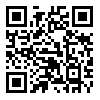مجله رویش روانشناسی از دادن گواهیهای کاغذی معذور است. لطفا تقاضا نکنید. همه گواهی ها در صفحه شخصی کاربران موجود است.
year 10, Issue 10 (Spring 2022 2021)
Rooyesh 2021, 10(10): 287-297 |
Back to browse issues page
Download citation:
BibTeX | RIS | EndNote | Medlars | ProCite | Reference Manager | RefWorks
Send citation to:



BibTeX | RIS | EndNote | Medlars | ProCite | Reference Manager | RefWorks
Send citation to:
Hassanalizadehroashan S, Alaf Asghari F, Mohamadzadeh admalaii R A, Najafipoor tabestanagh A, Savabi niri V. (2021). The effect of participatory learning on academic motivation, procrastination and academic vitality of high school students in Babol. Rooyesh. 10(10), 287-297.
URL: http://frooyesh.ir/article-1-3025-en.html
URL: http://frooyesh.ir/article-1-3025-en.html
Shiva Hassanalizadehroashan1 
 , Faranak Alaf Asghari2
, Faranak Alaf Asghari2 

 , Rajab ali Mohamadzadeh admalaii *3
, Rajab ali Mohamadzadeh admalaii *3 

 , Abbas Najafipoor tabestanagh4
, Abbas Najafipoor tabestanagh4 

 , Vahid Savabi niri5
, Vahid Savabi niri5 



 , Faranak Alaf Asghari2
, Faranak Alaf Asghari2 

 , Rajab ali Mohamadzadeh admalaii *3
, Rajab ali Mohamadzadeh admalaii *3 

 , Abbas Najafipoor tabestanagh4
, Abbas Najafipoor tabestanagh4 

 , Vahid Savabi niri5
, Vahid Savabi niri5 


1- M.Sc., General Psychology, Payame Noor Amol University, Mazandaran, Iran.
2- M.Sc. Student, Clinical Psychology, Islamic Azad University, Qeshm Branch, Qeshm, Iran.
3- Assistant Professor, Department of Psychology, Payame Noor University, Tehran, Iran. ,mohammadzadehpnu@yahoo.com
4- M.Sc., General Psychology, Zanjan University, Zanjan, Iran.
5- M.Sc., Clinical Psychology, Islamic Azad University, Ardabil Branch, Ardabil, Iran.
2- M.Sc. Student, Clinical Psychology, Islamic Azad University, Qeshm Branch, Qeshm, Iran.
3- Assistant Professor, Department of Psychology, Payame Noor University, Tehran, Iran. ,
4- M.Sc., General Psychology, Zanjan University, Zanjan, Iran.
5- M.Sc., Clinical Psychology, Islamic Azad University, Ardabil Branch, Ardabil, Iran.
Abstract: (2829 Views)
The aim of this study was to determine the effectiveness of participatory learning on academic motivation, procrastination, and academic vitality of high school students in Babol. The method of the present study is quasi-experimental with a pre-test-post-test and control group and the research population consisted of all first-grade male students of Pourasghar High School in Babol in the academic year 1399-00, From which 60 people (30 people in the experimental group and 30 people in the control group) were selected as a sample. Research tools for collecting data related to each of the variables, Hermans Progress Motivation Questionnaire (A.T.M) (1970), Academic Procrastination Scale (A.P.Q) (Savari, 2011), Academic Vitality Scale (A.V.Q) (Dehghani Zadeh and Chari, 2012), and in the direction Jigsaw method was used to hold participatory learning sessions. The results of analysis of covariance showed that the intervention of the "participatory learning" program in increasing academic motivation (p = 0.001, F = 54.05 (1.58)), reducing academic procrastination (p = 0.001, F=35.41 (1.38) and increase in academic vitality (p = 0.001, F = 41.88 (1.38)). Based on the results, it can be stated that schools by using the participatory learning process can provide the necessary ground to increase the motivation of students' academic achievement and academic vitality, as well as reduce their academic procrastination.
Type of Article: Applicable |
Subject:
Educational Psychology
Received: 2021/07/20 | Accepted: 2021/09/11 | ePublished: 2022/01/30
Received: 2021/07/20 | Accepted: 2021/09/11 | ePublished: 2022/01/30
Send email to the article author
| Rights and permissions | |
 |
This work is licensed under a Creative Commons Attribution-NonCommercial 4.0 International License. |




